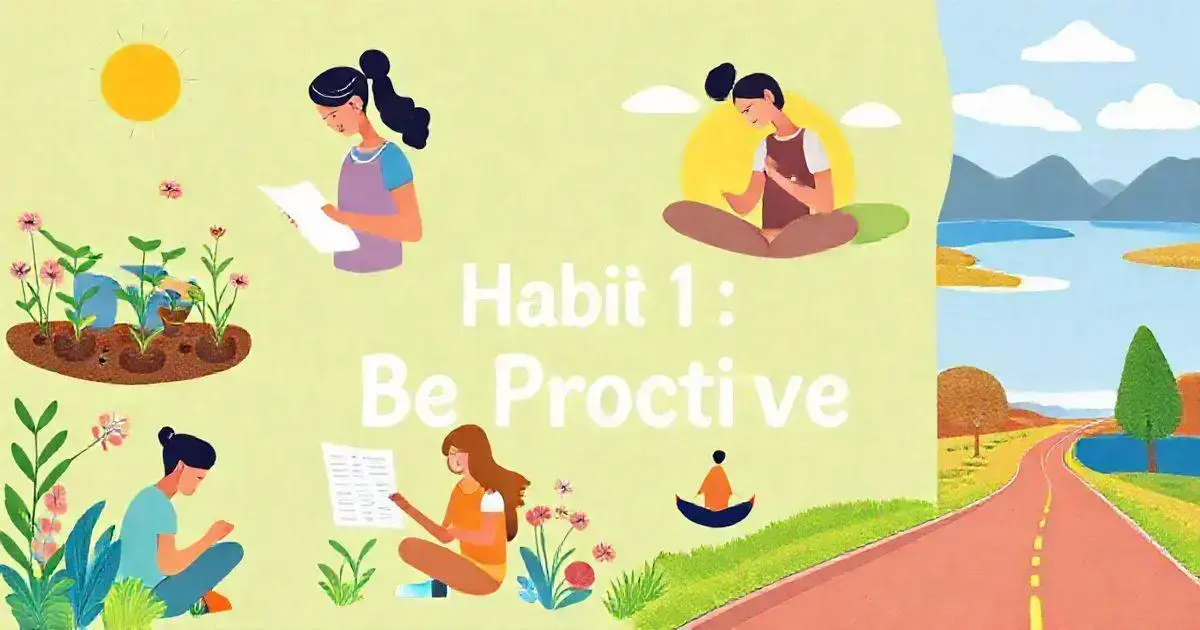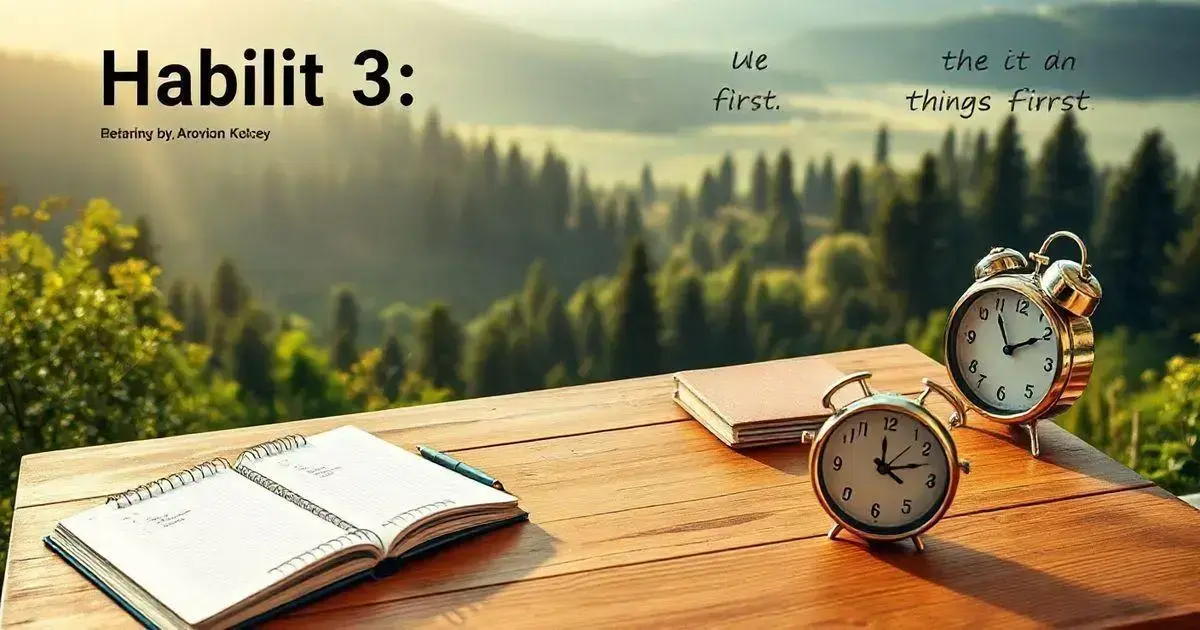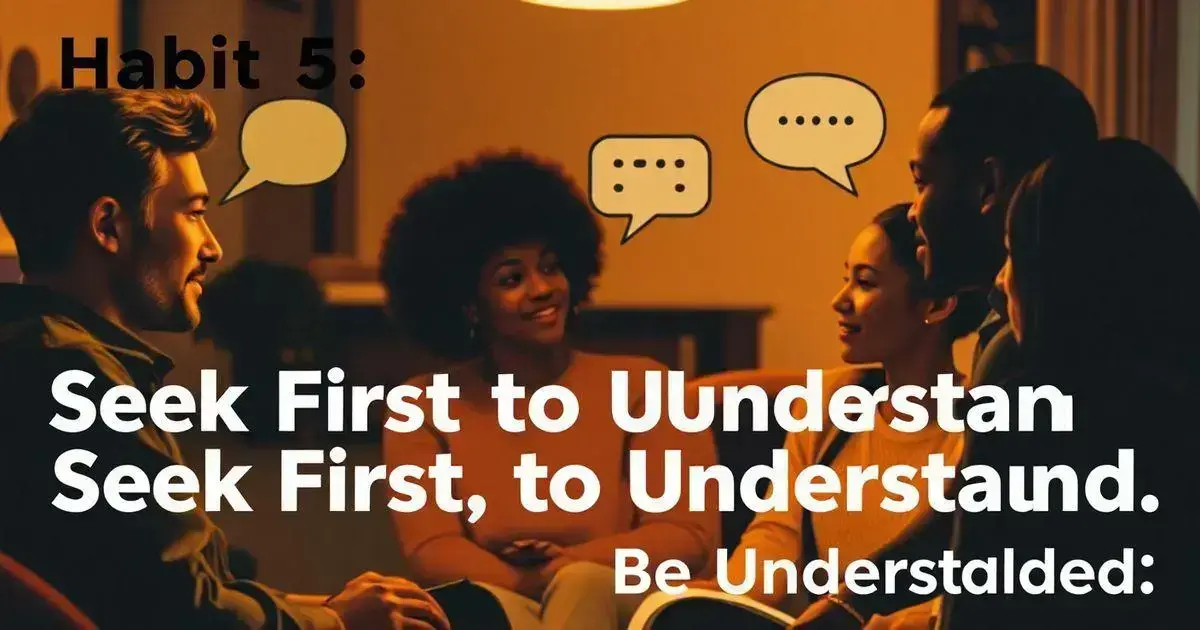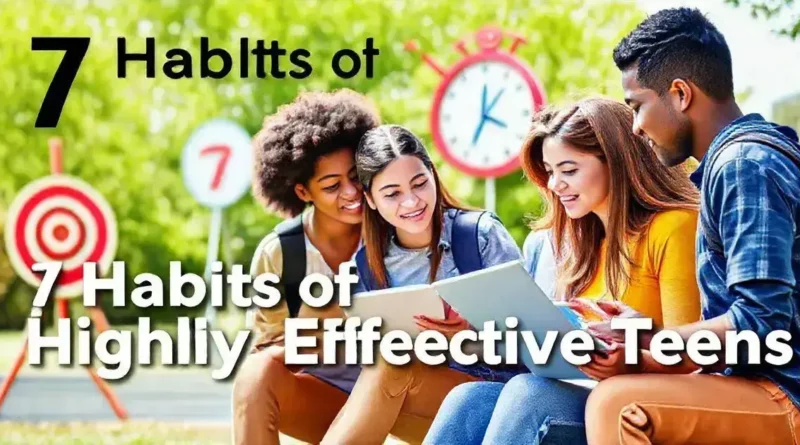7 Habits of Highly Effective Teens Notes: Key Takeaways and Tips
The 7 habits of highly effective teens notes are more than just a guide—they’re a roadmap to building a fulfilling and purposeful life. These habits introduce teens to simple yet powerful principles that foster self-awareness, growth, and success in every area of their lives.
With actionable steps, these habits help teens turn challenges into opportunities, encouraging them to take control of their futures. From managing time wisely to improving relationships, these strategies are tailored to the unique experiences of adolescence.
Ready to explore how these habits can redefine what’s possible? Let’s dive into the transformative power of these life-changing principles and unlock their full potential.
Introduction to the 7 Habits
The 7 habits of highly effective teens notes provide essential principles that can guide young people toward personal success. These habits, introduced by Stephen R. Covey, aim to instill a sense of responsibility and proactive behavior. Understanding these habits can help teens navigate life’s challenges and develop effective strategies for their future.
Each habit builds upon the previous one, creating a strong foundation for personal and interpersonal effectiveness. By embracing these habits, teens learn to prioritize their time, communicate better, and establish meaningful relationships.
Teenagers are often faced with distractions and pressures, and the 7 habits of highly effective teens notes offer a clear roadmap for focus and achievement.
This subtitle, ‘Introduction to the 7 Habits’, sets the stage for a deeper dive into each habit. Let’s explore how adopting these principles can shape the lives of young individuals.
Habit 1: Be Proactive

Be Proactive is all about taking control of your actions and decisions. This habit encourages teens to recognize that they are responsible for their choices, and they can influence their futures.
Instead of reacting to circumstances, being proactive means anticipating challenges and preparing for them. As highlighted in the 7 habits of highly effective teens notes, proactivity is the foundation for personal growth and resilience.
Teens can show proactivity by setting personal goals and working towards them. For example, if a student struggles with grades, they can take initiative by scheduling study sessions, seeking help from teachers, or forming study groups with peers. This self-driven approach not only improves academic performance but also builds confidence.
Another important aspect of being proactive is choosing your responses to situations. Life will throw challenges your way, but how you respond is what matters.
By focusing on solutions instead of problems, you cultivate a positive mindset. The 7 habits of highly effective teens notes emphasize this proactive approach as a vital step in shaping one’s destiny.
Ultimately, embracing the habit of being proactive empowers teens to take charge of their lives, fostering personal accountability and resilience. When young people realize they can shape their destinies, they become more effective learners and future leaders.
Habit 2: Begin with the End in Mind
Begin with the End in Mind emphasizes the importance of having a clear vision for your future. This habit, as outlined in the 7 habits of highly effective teens notes, teaches teens to create a mental picture of their desired outcomes in life, ensuring their actions align with their goals. By thinking about where they want to be in the future, teens can make better choices today.
To practice this habit, teens should take time to reflect on their values and aspirations. For instance, if a teen dreams of becoming a doctor, they should envision the steps needed to achieve that goal, such as working hard in school, volunteering in healthcare settings, and seeking mentorship from professionals in the field.
This approach, highlighted in the 7 habits of highly effective teens notes, helps them stay focused and motivated.
Additionally, creating a personal mission statement can be a powerful exercise. It allows teens to articulate their purpose and what they stand for, serving as a guide for their decisions. When faced with choices, they can refer back to their mission statement to ensure they stay on track.
This habit not only helps in academic pursuits but also in building strong personal relationships. When teens understand their values and goals, they can make more intentional connections with others who support their vision.
Habit 3: Put First Things First

Habit 4: Think Win-Win
Think Win-Win promotes the idea of finding mutually beneficial solutions in relationships and negotiations. This habit, as explained in the 7 habits of highly effective teens notes, teaches teens the importance of collaboration over competition, encouraging them to seek outcomes where everyone can succeed.
By adopting a win-win mindset, teens learn to value others’ perspectives and work towards solutions that are fair for everyone involved.
To practice this habit, teens should focus on building strong relationships based on trust and respect. For instance, in group projects, they can encourage input from all team members and strive to incorporate everyone’s ideas. This collaborative effort not only brings out the best in the group but also enhances the learning experience.
Another key aspect of thinking win-win is effective communication. Teens must express their needs while being open to understanding the needs of others. This balance fosters an environment where solutions can be created together, rather than battling for individual interests.
This habit also empowers teens to become leaders. When they think win-win, they can inspire their peers to work together harmoniously, creating a positive atmosphere in classrooms, sports, and friendships.
Habit 5: Seek First to Understand, Then to Be Understood

Seek First to Understand, Then to Be Understood emphasizes the importance of listening before speaking. This habit teaches teens how to communicate effectively with others by focusing on their needs and perspectives. By prioritizing understanding, teens learn to cultivate stronger relationships based on empathy and respect.
To put this habit into practice, teens should develop active listening skills. For instance, during conversations, they can practice reflecting back what the other person has said to show they are engaged. This not only validates the speaker’s feelings but also ensures that the listener understands the message being conveyed.
By seeking first to understand, teens can navigate conflicts more successfully. Instead of jumping to conclusions or making assumptions, they learn to explore different viewpoints. This approach can lead to more constructive discussions and resolve misunderstandings more effectively.
Moreover, this habit encourages teens to express their thoughts clearly after they have listened. When they share their own perspectives, it comes from a place of understanding, making their message more impactful and relatable.
Habit 6: Synergize
Synergize is the habit of celebrating differences and fostering collaboration. As highlighted in the 7 habits of highly effective teens notes, this practice teaches teens to value the unique abilities of others, creating solutions that are better than those achieved individually. The central idea is that the whole is greater than the sum of its parts.
To apply this habit, teens should embrace diverse perspectives and work proactively in teams. For example, in a school project, each group member might contribute their unique strengths—one might excel at research while another is skilled at presenting.
Combining these talents leads to superior results, a concept emphasized in the 7 habits of highly effective teens notes as essential for teamwork.
Moreover, synergy promotes empathy and respect, encouraging teens to overcome biases and form deeper connections. This skill is crucial not only in school but also in future professional and personal environments.
By embracing diversity, teens learn from others and reach new heights. Practicing synergy not only strengthens relationships but also cultivates an open and creative mindset.
Habit 7: Sharpen the Saw
Sharpen the Saw focuses on self-care to maintain balance and continuous renewal. This habit teaches teens to dedicate time to their physical, mental, emotional, and spiritual well-being, ensuring they are always prepared to face life’s challenges.
To develop this habit, teens should prioritize activities that rejuvenate and strengthen them. For instance, exercising regularly, eating healthily, and getting enough sleep can boost physical health. Reading, journaling, or learning new skills enhances mental growth, while spending time with loved ones and practicing gratitude nurtures emotional wellness.
Additionally, teens can connect with their spiritual side by reflecting on their values or spending time in nature. These practices help maintain clarity and purpose in their lives.
Sharpening the saw is about recharging to stay effective. By investing in themselves, teens can sustain their energy and focus, enabling them to thrive in every aspect of life.
FAQ – Frequently Asked Questions about The 7 Habits of Highly Effective Teens
What are the 7 Habits of Highly Effective Teens?
The 7 Habits are a set of principles that help teens develop personal and interpersonal effectiveness.
How do the 7 Habits improve a teen’s life?
By adopting these habits, teens can enhance their responsibility, communication skills, and overall effectiveness in various aspects of life.
Can I learn the 7 Habits on my own?
Yes, many resources are available, including books and online courses, to help you learn and implement the 7 Habits.
How long does it take to apply the 7 Habits?
Applying the 7 Habits is a gradual process and may take time and practice, but consistent effort leads to meaningful change.
Are the 7 Habits relevant for adults, too?
Absolutely! While they are designed for teens, the principles of the 7 Habits are applicable to individuals of all ages.
What is the first habit I should start with?
Starting with Habit 1: Be Proactive is often recommended, as it sets the foundation for all the other habits.
